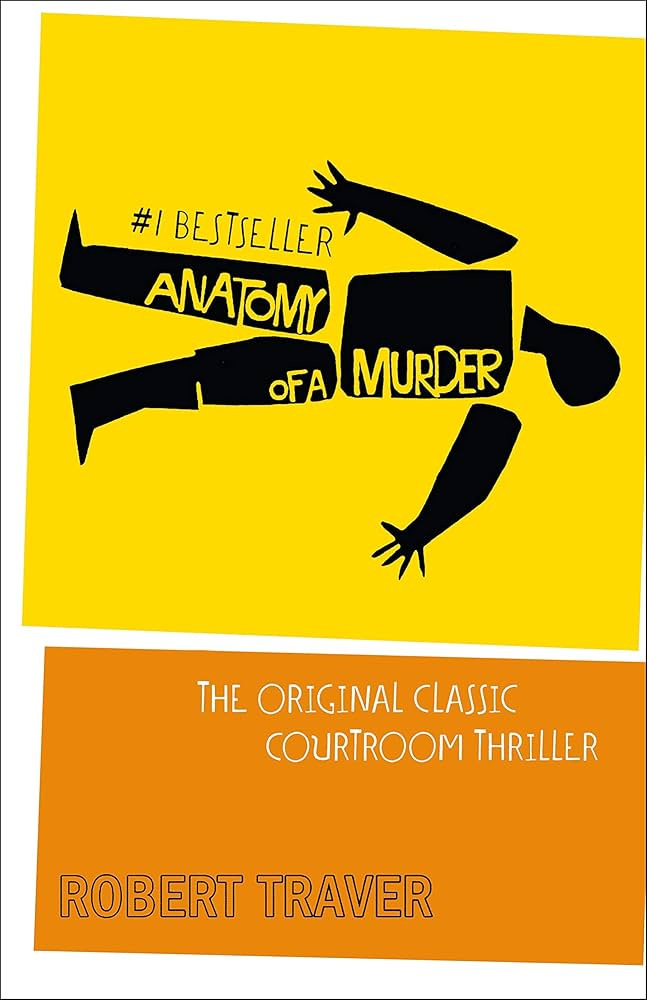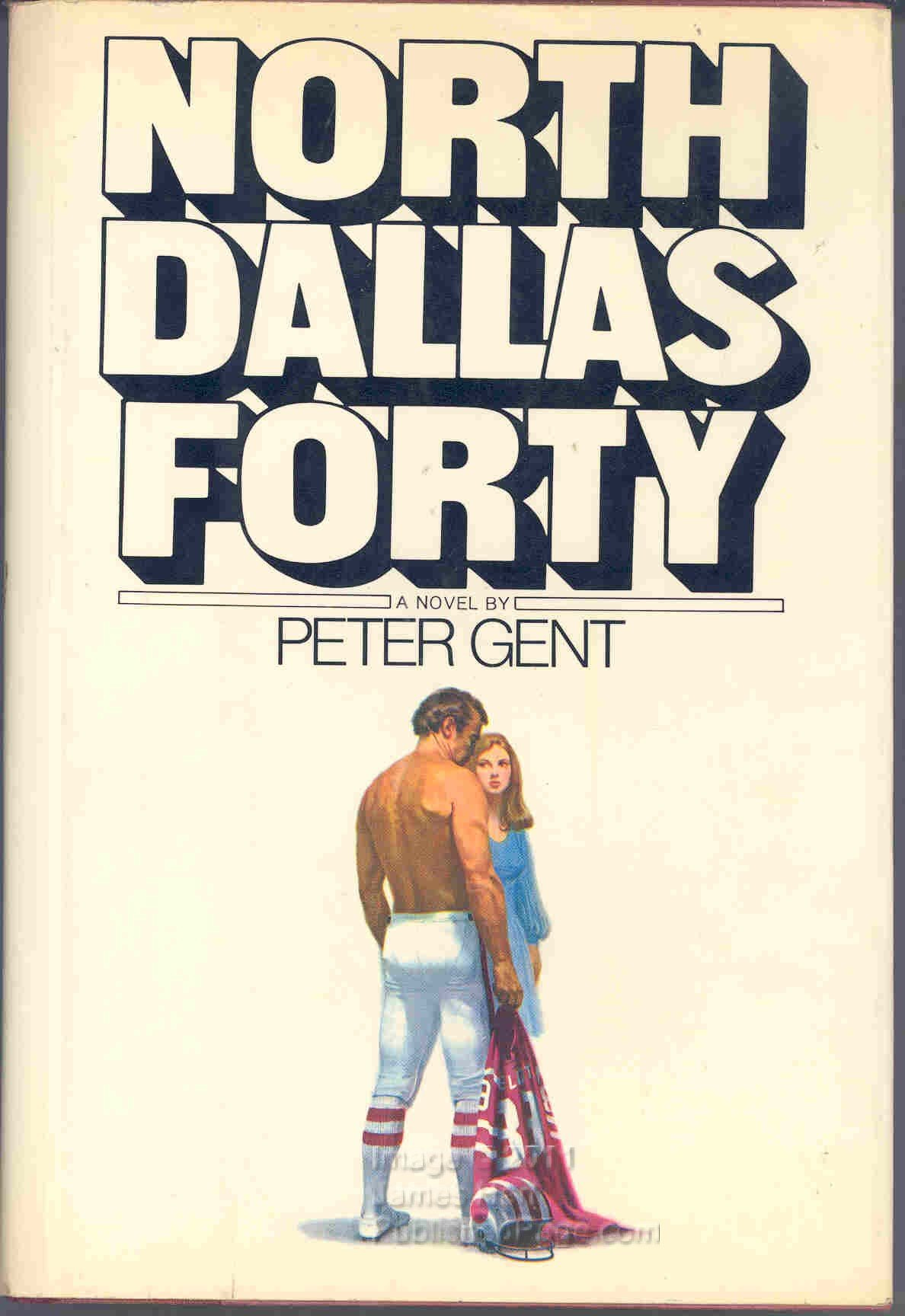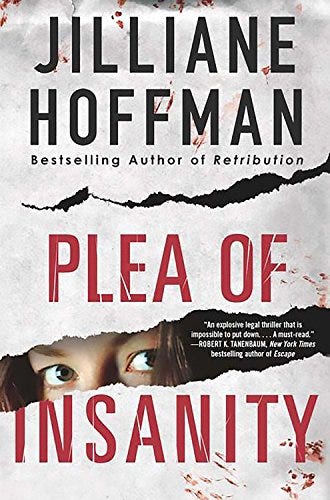In a recent essay, New York Times TV critic James Poniewozik referred to the hit Max medical drama The Pitt as “competence porn” – i.e., TV for people who get off on watching skilled professionals performing at a very high level. The term “competence porn” was apparently coined back in 2009 or so by TV writer John Rogers (Leverage). But though the term may be fairly new, the idea behind it is not. In his 1980 book, Bestsellers, author John Sutherland explored, among other things, American pop fictions that did essentially the same thing that The Pitt does so well: provide an insider’s perspective of a difficult and specialized profession. Sutherland called this genre not “competence porn” but “institutional fiction,” which he described as prose “work whose author is already a knowledgeable insider, professionally possessed of the specialized information which writers like [Arthur] Hailey have to soak up by research.” He continued: “In the 1970s there has been a vogue for authors whose primary expertise is blatantly non-novelistic: doctors (Crichton, Cook), politicians and politicians’ aides (Agnew, Safire, Ehrlichman, Anderson), jockeys (Dick Francis, whose racing background is so authentic that, as one critic put it, “You can smell and taste it”), [and] above all policemen and policewomen…Supersellers in the police genre are the East Coast ex-cop Dorothy Uhnak and, above all, her West Coast counterpart ‘Sergeant’ Joseph Wambaugh, with his new order of police chivalry (The Blue Knight, The New Centurions)…All of the covers of Wambaugh’s paperbacks have a police motif – handcuffs, cap, truncheon, badge, service .38, usually set against a blue background. This iconography serves to remind us that the author is a policeman who writes novels, rather than a novelist who writes about policemen…Such things as police procedure and city topography are given with a detailed precision which only ‘research’ could otherwise supply, and yet research could not produce it as casually.”
So-called institutional fiction wasn’t born in the 1970s. It has been around forever. Robert Traver’s bestselling 1958 novel, Anatomy of a Murder, is a courtroom drama written by a consummate justice-system insider (Traver was the pseudonym of attorney John D. Voelker, who had extensive experience as a defense attorney and a prosecutor, and who was appointed to serve on the Michigan Supreme Court just days after the novel was accepted for publication). Many of the aviation novels of Ernest K. Gann (The High and the Mighty, In the Company of Eagles, etc.) qualify as both institutional fiction and competence porn. The war novels of writers such as James Jones (From Here To Eternity) and Herman Wouk (The Caine Mutiny) are also works of institutional fiction, written by men who had served in the Army (Jones) and Navy (Wouk) during World War II, and knew their milieus inside and out. What’s more, many of the best espionage thrillers of the late twentieth century were written by men like John Le Carre, Frederick Forsyth, Graham Greene, and Ian Fleming, who had experience in spy work. Ever since about the mid-twentieth century, competence porn has been a staple of the American bestseller list.
Another one of the authors whom Sutherland singles out for special mention is Peter Gent, who spent five years as a wide receiver for the Dallas Cowboys before taking up novel-writing in the early 1970s. His first novel, North Dallas Forty, was published in 1973 and is regarded as the first work of fiction to accurately depict life inside the National Football League. Catholic priest Andrew M. Greeley began publishing novels of the clerical life (The Cardinal Sins, Thy Brother’s Wife, Virgin and Martyr, etc.) in the early 1980s and brought the same level of insider’s knowledge to his priest stories that Wambaugh brought to his police stories. In 1987, lawyer-turned-fiction-writer Scott Turow reignited enthusiasm for the institutional novel with his legal thriller Presumed Innocent.
Much of the best literary competence porn has been written by lawyers and doctors. Regular readers of this blog will know that I have lately been reading a lot of books by Michael Palmer, Tess Gerritsen, and Jilliane Hoffman. Palmer, who died in 2013, wrote somewhere around 25 medical thrillers. Tess Gerritsen, born in 1953, is a retired physician who has written several dozen novels in a variety of genres, including romance, espionage, mystery, and, of course, the medical thriller. Jilliane Hoffman is a former Miami, Florida, public prosecutor who, since 2004, has published eight novels, most of them legal thrillers. Books by authors such as Palmer, Gerritsen, and Hoffman provide a welcome relief from those novels and TV shows in which the cops and lawyers and doctors and nurses are obviously the creation of a writer without much knowledge of the law or medicine. This week I read Hoffman’s 2009 legal thriller Plea of Insanity. In that novel, a couple of prosecutors are visiting a crime scene, a nice home in Coral Gables, Florida, where a woman and her three children were brutally murdered, presumably by the woman’s husband, a prominent local doctor. While searching the murder scene, the senior prosecutor mentions to his subordinate (who has never visited a murder scene before) that he is waiting on a warrant that will allow him to search the husband’s closet to see if he can find shoes whose tread marks match the shoe prints left in the victims’ blood. The junior prosecutor says, “I wouldn’t think you’d need a warrant to search the victims’ own home.” That made perfect sense to me. It’s a crime scene. Why can’t the police search it thoroughly without a warrant? But the senior prosecutor informs his subordinate that, “A dead body might give you exigent circumstances to get into the house, secure it, and wait for the ME [medical examiner], but it doesn’t give you the right to do a full search, even if the victim – or, in this case, victims – lived there too. Best to remember that. I’ve watched hotshot veteran cops somehow forget they need a warrant when they respond to a homicide. They see ‘dead body’ and that’s all they need. What a freaking mess that is to clean up. Especially in a situation like this, where one of our victims turns out to be our defendant.”
Elsewhere in Hoffman’s novel, during his summation, a defense attorney asks the jurors to imagine themselves into the mind of the defendant when determining a verdict. The prosecutor immediately objects that this is a “golden rule violation.” I had never encountered this term before and couldn’t understand what was wrong with trying to emphasize with an accused man. But, as Hoffman makes clear, this is not allowed in an American courtroom. This seemed odd to me, so I Googled “golden rule violation” and found plenty of sources that support Hoffman’s facts. Here’s an explanation from a website run by the Cornell Law School:
In U.S. v. Palma , while condemning the Golden Rule, the Eighth Circuit held that “A so-called ‘golden rule’ argument which asks the jurors to place themselves in the position of a party ‘is universally condemned because it encourages the jury to ‘depart from neutrality and to decide the case on the basis of personal interest and bias rather than on the evidence.’”
I’ve probably watched hundreds of legal dramas in which lawyers have urged jurors to place themselves in the accused’s shoes when decided for either guilt or innocence. Your average TV scriptwriter probably doesn’t see anything wrong with that. Neither does the average pop-fictioneer without a background in the law. But that is what makes competence porn so enjoyable. We not only get a good story, we also learn things that only a highly-trained professional is likely to know. How many times have you watched TV cops arrive at the scene of a murder and then start poking around in closets and drawers and cupboards without benefit of a search warrant? It wouldn’t occur to most of us that that kind of behavior might later compromise the prosecutor’s ability to win a conviction.
Recently I finished reading Michael Palmer’s 2007 medical thriller, The Fifth Vial. While it is a good book, I was slightly less happy with it than previous Palmer books because one of Palmer’s primary viewpoint characters is a private investigator. And even though the P.I. is investigating a medical mystery, he himself is not a doctor, so he doesn’t ooze medical competence the way so many other Palmer protagonists do. Palmer doesn’t seem to have any special insights into how private investigators operate. His P.I. seems to have been inspired by TV sleuths. After finishing The Fifth Vial, I went back and read Flashback, his third novel, published in 1988. This book was competence porn at its finest. The main character is Zach Iverson, a top Boston neurosurgeon who has decided to move back to his small New Hampshire hometown and go to work for a local hospital managed by his brother, Frank. Although written in third-person, pretty much the whole novel is told from Zack’s viewpoint. Thus we are almost perpetually inside the head of a very competent professional who is trying to suss out a very specialized mystery: why are some recent surgery patients suffering debilitating flashbacks to their operations – operations they were presumably unconscious during? One of the primary focuses of Flashback is the very esoteric world of anesthesiology. Zack begins to suspect that one of his hospital’s anesthesiologists is using an experimental drug to knock out his patients during surgery. And he suspects that the drug, though it renders the patient immobile, doesn’t actually render him unconscious and doesn’t mitigate pain, so that the patient experiences excruciating pain every time a tumor is cut from his body or his ribs are cracked in order to operate on his heart. Weeks or months later, if the patient overhears some obscure medical term that was mentioned during the operation (for instance, “Metzenbaum scissors”), or if he hears the music that was playing on the sound system during surgery, he suffers a sort of PTSD flashback to his surgery and is convulsed by fear and pain.
I have mentioned my fondness for the books of Tess Gerritsen many times before. I am particularly fond of her medical thrillers, such as Harvest, Life Support, Bloodstream, Gravity, and The Bone Garden. Her Rizzoli and Isles series of crime novels also feature plenty of medical competence porn, because Maura Isles is a highly skilled pathologist. Alas, Gerritsen’s two most recent novels, The Spy Coast and The Summer Guests, are spy novels and, though they are entertaining, they don’t appear to be exactly steeped in details about CIA work that only an insider could provide. They appear to be spy novels inspired primarily by other spy novels. As such, they are fun without being conspicuously insightful into the world of espionage. I applaud Gerritsen for going outside her comfort zone, and I will probably read more installments of her spy series (formally known as The Martini Club series). But I certainly hope that she hasn’t abandoned the medical thriller genre for good.
I don’t wish to imply that only a doctor can write a great medical novel and only a lawyer can write a great courtroom novel. One of the best medical thrillers I’ve read in the past year or two was The Cobra Event, written by Richard Preston. Also excellent were W. C. Heinz’s 1963 medical novel The Surgeon, as well as the many medical novels of Noah Gordon (The Physician, Shaman, Matters of Choice, The Death Committee, The Last Jew, etc.). But Preston, Heinz, and Gordon were all top-notch journalists before they took up novel writing. Preston’s specialty is nonfiction stories about disease and bioterrorism, most of them written for The New Yorker. Before writing The Cobra Event, he published the hugely successful nonfiction book The Hot Zone, which covers similar territory. Noah Gordon was the science editor for the Boston Herald before he took up writing fiction. Heinz was best known as a sports writer, but he was a gifted journalist and capable of deeply researching and writing about nearly any kind of subject matter. In fact, The Surgeon started out as a work of nonfiction, but Heinz thought it would be more dramatic if he could compress his story into a single day in the life of a single doctor. And so he created a protagonist who was a composite of the many thoracic surgeons he had interviewed for his nonfiction project. You don’t have to be a doctor or a lawyer to write a great medical or legal novel, but you certainly have to be willing to do a great deal of research if you want your book to qualify as competence porn, which the medical novels of Preston, Heinz, and Gordon certainly do.
Likewise, just because a person happens to be a doctor or a lawyer doesn’t mean that he can write a good novel. I recently panned the medical thriller Under the Knife, written by urologist Kelly Parsons. Parson’s appears to be a gifted doctor, but he isn’t a naturally gifted storyteller. His novel felt like it was cobbled together out of a bunch of mediocre TV scripts. Only rarely do highly competent members of one profession (medicine, law, media, etc.) also manage to become highly competent novelists. But when it happens, it makes for some great popular fiction.
If you haven’t watched The Pitt on Max, I highly recommend that you do so. It is TV at its finest. And if, after watching The Pitt, you find yourself hankering for more competence porn, I suggest that you seek out novels by Michael Palmer, Tess Gerritsen, and Jilliane Hoffman, all of whom know (or knew) how to combine their insider knowledge of a specialized profession with a professional storyteller’s understanding of how to develop interesting characters, spin interesting plots, and ratchet up suspense. For those suffering from competence porn withdrawal symptoms, the books of Palmer, Hoffman, and Gerritsen may be just what the doctor ordered.







Yeah! Good one.